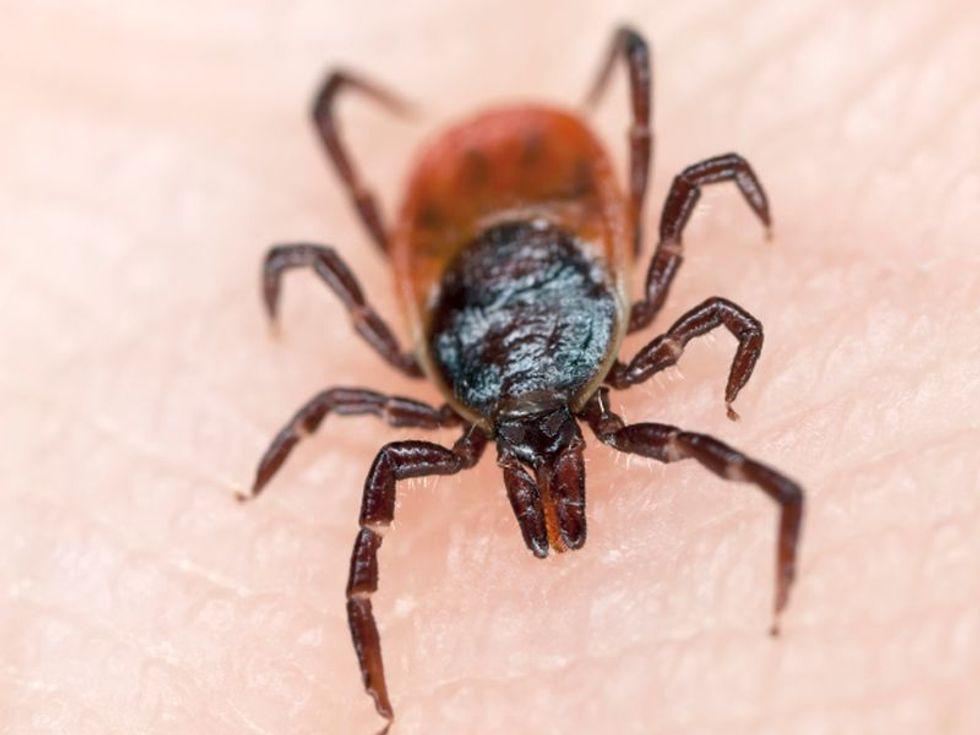
You likely know that Lyme disease can be spread by ticks, but have you heard of babesiosis?
It’s a different disease caused by the bite of a deer tick, and cases are rising in the United States, scientists from the University of Vermont and Tufts University say.
Babesiosis is caused by parasites that live in red blood cells. It’s spread through black-legged ticks (Ixodes scapularis). These arachnids have distinct red abdomens. They are about the size of a sesame seed.
Deer ticks are prevalent in the Northeast and the upper Midwest.
The parasite they transmit is called Babesia microti.
Cases of babesiosis had expanded to eight northeastern states by 2019, according to the U.S. Centers for Disease Control and Prevention.
Between 2011 and 2019, Vermont saw the greatest growth in cases. That state had a 1,602% increase in disease occurrence.
“Babesiosis can be caused by several parasites in North America, but the overwhelming majority are caused by one type that is transmitted by black-legged ticks,” explained Robert Smith. He is director of the division of infectious diseases at Maine Medical Center and a professor of medicine at the University of Vermont’s School of Medicine.
Smith is also one of three investigators on a recent grant of over $1 million from the CDC to analyze electronic health records and track tick-borne diseases, including Lyme and babesiosis. The other two investigators are Edouard Vannier, a researcher in the division of geographic medicine & infectious diseases at Tufts Medical Center in Boston, and Linden Hu, the Paul and Elaine Chervinsky Professor of Immunology at Tufts.
“Our research has shown an increase in the number of ticks carrying pathogenic Babesia parasites,” Smith said in a Tufts news release.
When you’re infected, you might feel like you have the flu. But many people have no symptoms at all — about 20% of those infected are symptom-free.
Those who do feel sick will notice symptoms between one to four weeks after being bitten by an infected tick. They may experience fever, fatigue, chills, sweats, loss of appetite, muscle aches and a headache, Smith said.
Diarrhea, nausea or vomiting are predictors of a severe infection, the researchers said.
A doctor can identify the parasites in your blood through a blood test. They will treat the disease with antimicrobial drugs or, if you’re very sick, with a blood transfusion. This rapidly reduces the number of infected red blood cells in your blood.
Symptoms may last up to two weeks, but often subside within a day or two after treatment begins.
The disease can’t be transmitted from person to person, and there’s a very low chance of acquiring babesiosis from a blood transfusion, or for transmission from mother to child during pregnancy or childbirth.
However, the Babesia parasites infect and destroy red blood cells.
That can cause some alarming effects like anemia, jaundice, shortness of breath and dark urine. More severe complications can include lung inflammation, kidney failure, low blood pressure associated with rupture of the spleen, blood clots and even death.
The condition is more likely to turn severe in people over age 50 and for those who have a weakened immune system. Even with treatment, babesiosis can last much longer in people with a weakened immune system — sometimes for months or even years.
See the doctor if you’ve been bitten by a tick and develop flu-like symptoms. Having a fever above 103 degrees Fahrenheit, severe shortness of breath, yellowing skin and severe abdominal pain signals the need to go to the nearest emergency room.
You can also prevent these tick-borne illnesses by decreasing the chance of a tick bite:
-
Check yourself and your children for ticks after spending time outdoors where ticks are common, such as in wooded areas, in tall grasses, around bushes and in fallen leaves.
-
Shower soon after exposure.
-
Use insect repellents that contain 20% DEET.
-
Wear protective clothing sprayed with insecticides that contain 0.5% permethrin.
“If you take proper precautions, especially in places where ticks like to hang out, you can really reduce the chance of getting sick,” Hu said.
More information
The U.S. Centers for Disease Control and Prevention has more on babesiosis.
SOURCE: Tufts University, news release, Oct. 23, 2023
Source: HealthDay

Leave a Reply